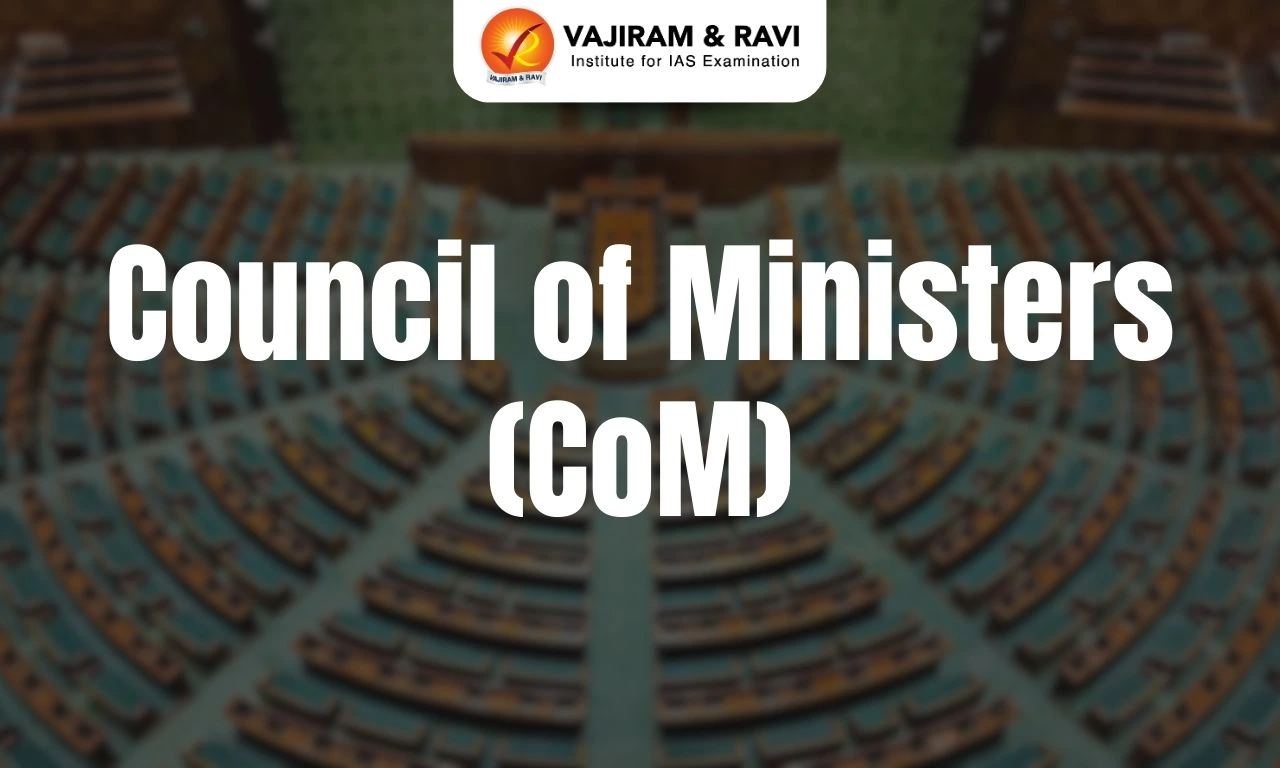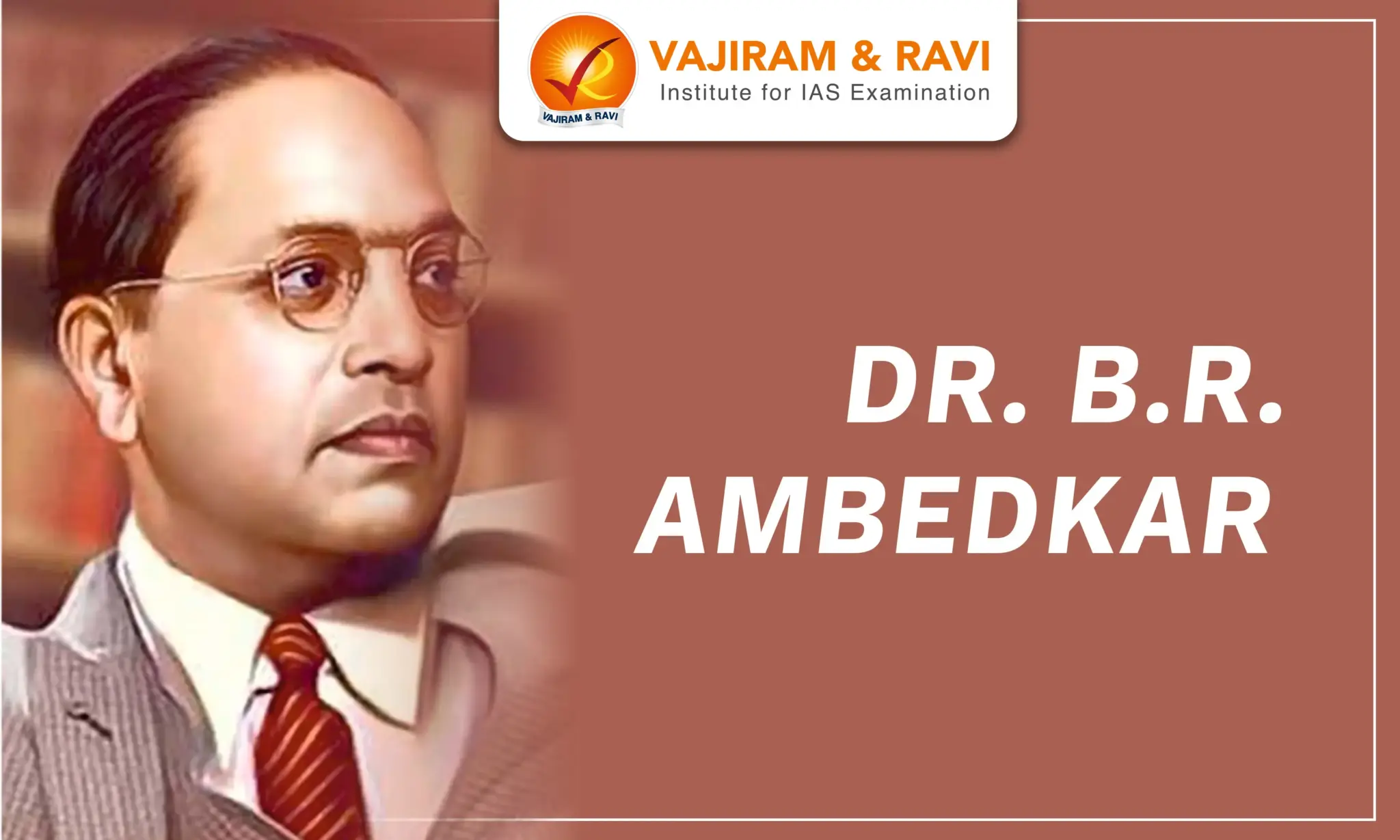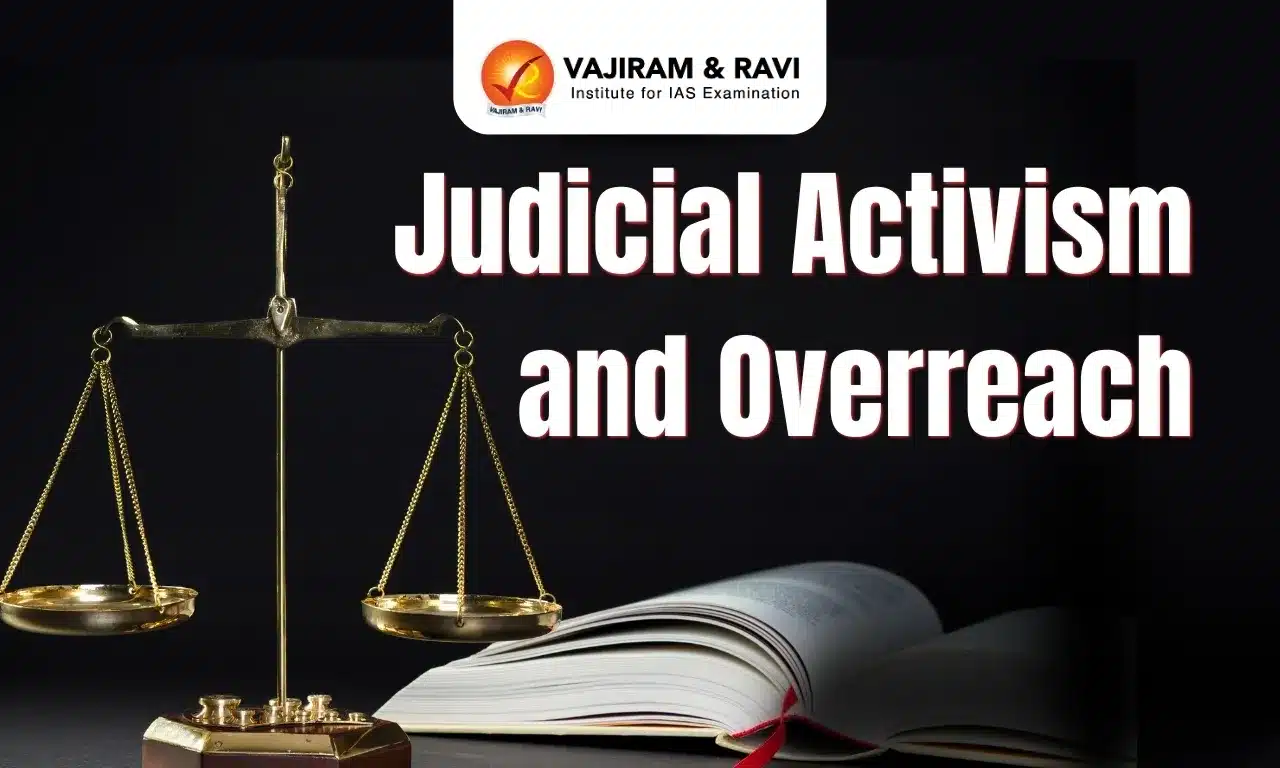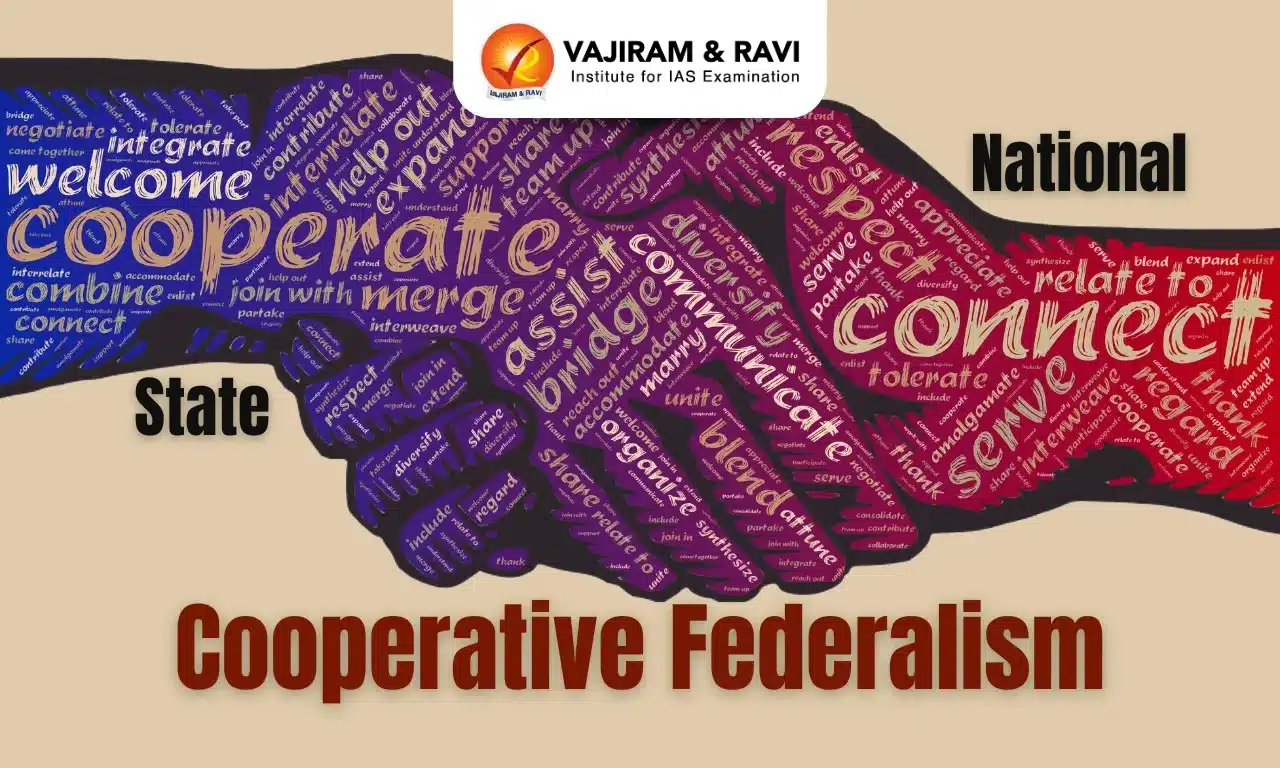What does the Council of Ministers (CoM) constitute?
The Council of Ministers (COM) is the highest decision-making body in the government, headed by the Prime Minister. According to the 91st Constitutional Amendment Act 2003, The total number of ministers, including the Prime Minister, in the Central Council of Ministers shall not exceed 15 percent of the total strength of the Lok Sabha. In India, the Council of Ministers is divided into the following levels:- Ministers are responsible for heading the ministries and departments of the Central government.
- Ministers of State are those who may be given independent charge of specific departments or may assist cabinet ministers.
- Deputy Ministers assist both cabinet ministers and ministers of state in their administrative, political, and parliamentary duties.
- Additionally, the Prime Minister may suggest appointing a Deputy Prime Minister, usually for political reasons.
What are the constitutional provisions pertaining to the Council of Ministers(CoM) in India?
| Article | Description |
| Article 74 |
|
| Article 75 |
|
| Article 77 |
|
| Article 78 |
|
| Article 88 |
|
Oath and Salary of Ministers
- Oath: The President will administer the oaths of office and secrecy to the Minister. In his/her oath of office, the minister swears:
- to bear true faith and allegiance to the Constitution of India,
- to uphold the sovereignty and integrity of India,
- to faithfully and conscientiously discharge the duties of his office, and
- to do right to all manner of people in accordance with the Constitution and the law, without fear or favour, affection or ill will.
- Salary: The compensation for ministers, including salaries and benefits, is established by Parliament and includes the same pay and perks as for members of Parliament, as well as additional privileges such as a sumptuary allowance, free accommodation, traveling allowance, medical facilities, etc.
What are the various responsibilities of the Council of Ministers(CoM)?
Collective Responsibility
- The principle of collective responsibility is a cornerstone of the parliamentary system of government, as outlined in Article 75 of the constitution.
- This principle holds that all members of the council of ministers are jointly responsible to the Lok Sabha, meaning they must work as a team and take responsibility for their actions as a group.
- When the Lok Sabha passes a motion of no confidence against the council of ministers, all members of the council must resign, including those from the Rajya Sabha.
- Additionally, the principle of collective responsibility also means that all cabinet ministers, as well as other ministers, are bound by decisions made by the Cabinet, even if they disagree with them during the Cabinet meeting.
Individual Responsibility
- In addition to the principle of collective responsibility, Article 75 also includes the principle of individual responsibility.
- Individual responsibility means that ministers serve at the pleasure of the President and can be removed by the President at any time, regardless of whether the council of ministers has the confidence of the Lok Sabha.
- However, such removal would only occur on the advice of the Prime Minister. If the Prime Minister has a difference of opinion or is unhappy with a minister's performance, he/she can request the resignation of the Minister or advise the President to dismiss him/her.
What is the significance of the CoM in a Parliamentary democracy?
The significance of the Council of Ministers in a parliamentary democracy can be analyzed through several key areas:- Policy-making: The Council of Ministers plays a crucial role in setting policy priorities and making major policy decisions. It acts as the primary decision-making body of the government, responsible for determining the direction and priorities of government policies.
- Implementation: The Council of Ministers ensures that government policies are implemented effectively. This includes allocating resources, supervising the work of government departments, and monitoring progress.
- Leadership: The Council of Ministers provides leadership and direction to the government. It is led by the Prime Minister, who acts as the head of the government and provides overall direction and guidance to the Council of Ministers.
- Accountability: The Council of Ministers is accountable to the Parliament, and the Prime Minister is responsible to the Parliament for the actions of the Council of Ministers. The Council of Ministers is required to answer questions from members of Parliament and to present its policies and legislation for approval.
- Confidence of Parliament: The Council of Ministers must maintain the confidence of the Parliament, which it does by presenting the government's policies and legislation for approval and by answering questions from members of Parliament.
How is the CoM different from the Cabinet?
| Council of Ministers | Cabinet |
|
|
|
|
|
|
|
|
|
|
Last updated on November, 2025
→ Check out the latest UPSC Syllabus 2026 here.
→ Join Vajiram & Ravi’s Interview Guidance Programme for expert help to crack your final UPSC stage.
→ UPSC Mains Result 2025 is now out.
→ UPSC Notification 2026 is scheduled to be released on January 14, 2026.
→ UPSC Calendar 2026 is released on 15th May, 2025.
→ The UPSC Vacancy 2025 were released 1129, out of which 979 were for UPSC CSE and remaining 150 are for UPSC IFoS.
→ UPSC Prelims 2026 will be conducted on 24th May, 2026 & UPSC Mains 2026 will be conducted on 21st August 2026.
→ The UPSC Selection Process is of 3 stages-Prelims, Mains and Interview.
→ UPSC Result 2024 is released with latest UPSC Marksheet 2024. Check Now!
→ UPSC Prelims Result 2025 is out now for the CSE held on 25 May 2025.
→ UPSC Toppers List 2024 is released now. Shakti Dubey is UPSC AIR 1 2024 Topper.
→ UPSC Prelims Question Paper 2025 and Unofficial Prelims Answer Key 2025 are available now.
→ UPSC Mains Question Paper 2025 is out for Essay, GS 1, 2, 3 & GS 4.
→ UPSC Mains Indian Language Question Paper 2025 is now out.
→ UPSC Mains Optional Question Paper 2025 is now out.
→ Also check Best IAS Coaching in Delhi
Council of Ministers FAQs
Q1. Do ministers have legal responsibility in India?+
Q2. When was the first No-confidence motion moved in India?+

















